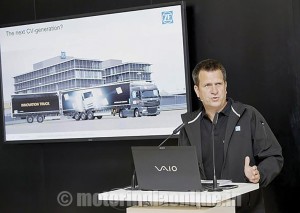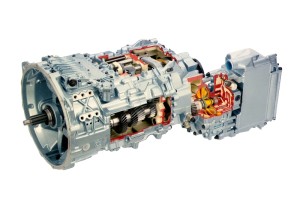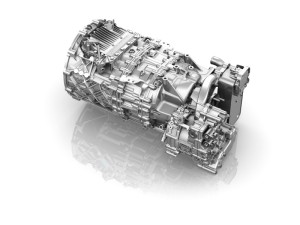
The coupling legend, ZF’s AS Tronic, the automatic transmission system for heavy commercial vehicles, has achieved a landmark figure over the past few days. One million units of the world’s most successful automatic transmission have come off the production line at the ZF location in Friedrichshafen since production got underway in 1997. Whether it is delivery traffic or long-distance traffic, coach, construction equipment or rail vehicle, ZF can now provide the right AS Tronic configuration for every conceivable commercial vehicle variant.
“For almost two decades, commercial vehicle manufacturers around the globe have been relying on ZF’s AS Tronic transmission range when it comes to automatic gear shifting. It is considered a milestone in drive development and has meanwhile become indispensable in modern-day commercial transport” explains Mr. Fredrik Staedtler, Head of ZF’s Commercial Vehicle Technology division based in Friedrichshafen.
ZF developed the first fully automated commercial vehicle transmission with the AS Tronic in 1997. Apart from the then development partner Iveco, today numerous other major international truck manufacturers put their trust in the automatic transmission system by ZF. However, the low-wear AS Tronic is also used in coaches, construction equipment, and in rail vehicles.
Cost-effectiveness ensures success
While the driver had to preselect gears manually on the early semiautomatic AS Tronic transmission, the second generation of the transmission launched in 2000 relieved the driver of the need to change gear. Automatic gear selection and electronically controlled gear changes reduce the strain on the driveline, thus increasing the service life of the driveline components. By networking transmission electronics and engine management via the CAN bus, the gearshift strategy used by the ZF-AS Tronic always ensures the engine operates in the optimum speed range. In this way, the power is transmitted very efficiently, thereby saving fuel, to the drive axles.
Gradual extension of the transmission range
An entire AS Tronic transmission range is now available, covering a torque range between 500 and 3 100 Newton meters. The AS Tronic lite (500 to 1 100 Nm) and the AS Tronic mid (800 to 1 600 Nm) are mainly used in light delivery trucks, buses, and medium-duty commercial vehicles, while the larger members of this transmission family are suitable for heavy trucks and construction vehicles. With its 12 speeds, the AS Tronic covers the torque range from 1 600 to 3 100 Nm while the 16-speed version offers a particularly fine spread of gear ratios for engines with up to 2 600 Nm. The entire AS Tronic family can be combined with the Intarder, ZF’s transmission brake. This can be integrated fully into the transmission thanks to its compact design. Inside the transmission, the Intarder not only boosts the engine braking power, but also reduces the workload of the service brake by up to 90 percent, particularly on long downhill stretches. All of which enhances safety as well as reducing the impact on the environment and lowering maintenance costs.
Successor ready and waiting
Coinciding with the production milestone of the AS Tronic, ZF is writing a new chapter in the history of this transmission type, TraXon, the modular automatic transmission system, which will be produced at the ZF location in Friedrichshafen and will gradually replace the AS Tronic over the next few years.
The all-new basic transmission is suitable for torque requirements of up to 3 500 Nm and can be linked to five modules. The new system features an anticipatory shifting strategy courtesy of PreVision GPS. ZF thus gives truck manufacturers the opportunity to link up the transmission with GPS data and digital map material. In this way, unnecessary gearshifts can be avoided, for example when a conventional transmission control unit shifts up a gear before an uphill gradient or a narrow bend, just to shift down to a lower gear shortly after.

